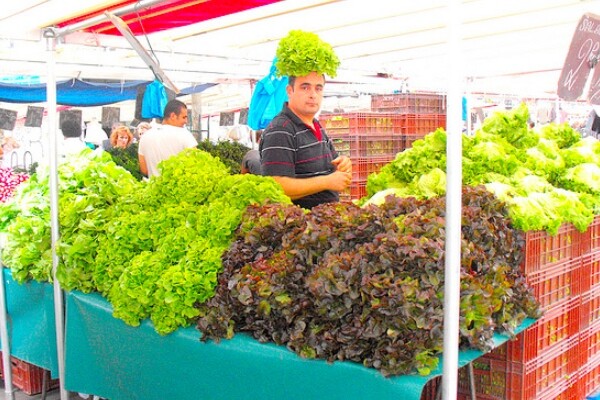Five Things We Learned About Food in 2015

Science is not one great mystery, where a person of Sherlock Holmes-level intelligence can look at all of the puzzle pieces laid out before them and come up with an answer for "what it all means." It's more like a relay race, where each study -- even the really bad ones, and especially the ones that actually don't seem to solve anything at all -- is simply one of the legs on the journey. "If I have seen further, it is by standing on the shoulders of giants," goes the old saying.
So, 2015 saw science -- as it does every year before it -- throwing another giant stepping stone on top of the pile, making that view even broader and more expansive. Here, then, are five food-related findings we know now that we didn't know before. At least, until subsequent studies refute them!
In no particular order:
This is a weird one! Apparently, over the many, many centuries of human development, our brains have been conditioned to consider certain foods as being "masculine" and other foods as being "feminine." That is to say, we look at a salad and consider it to be [blank], and we look at a steak and consider it [blank]. (You can probably guess which is which.)
Anecdotally, this concept checks out, but it was the first time it was confirmed with science. More importantly, now that we know our brains do this, it's tough not to see how it's manifested itself in places like sports stadiums, where all the foods are chock-full of fat, grease, and salt.
A $15-an-hour minimum wage won't hurt the fast food industry.
For the past few years, the debate on whether or not fast food workers (and minimum wage workers in all job sectors) should have their wage raised to $15 an hour went something like this: "Of course, $15 is not only well deserved, but a negligible cost for these enormous companies!" versus "No, it's going to bankrupt the industry and jobs will be lost!"
After economists crunched the numbers this year, the findings support the former argument. A wage increase from $7.50 to $15 an hour over a four-year period could easily be absorbed by a mostly negligible cost increase in certain items. So, that's an argument that should be swept from the debate.
Don't sleep on the positives that come from family dinners.
While it was common for many of us growing up, Americans are now less likely to sit down together for nightly family meals. Staggered jobs, long commutes, and tech and media distractions make this all the more difficult. The problem is, kids that don't have regular family dinners are missing out on a whole lot.
A study found that children who regularly eat family dinners are exposed to roughly 1,000 more "rare words," bounce back quicker from "cyber-bullying," and are less likely to be obese.
Other people totally influence how you eat.
While family dinners are important, when it comes to eating with other adults, group dinners may not always be beneficial! Because other people's eatings habits, many of which are surely poor, can rub off on us.
A study found that people will mirror how other people around them are eating, as opposed to how they normally eat. It's based on a concept called "social modeling," where we tend to mimic those around us. Something to be mindful of the next time the company brain trust takes you out for a steak dinner.
Alcohol makes food smell better.
Finally, science has figured out why food tastes a whole lot better -- or, at least, why our standards go way, way down -- after a long night of drinking. Turns out, alcohol fudges around with our brain chemistry in a way that makes food smell better to us.
This leads to lowering the bar of what is acceptable to eat. Which leads to craving the first thing we see and smell. Which leads to ordering from the Taco Bell drive-thru and the obligatory regret the morning after.
In conclusion: Hooray for science!

